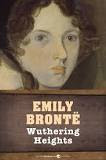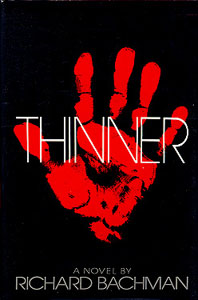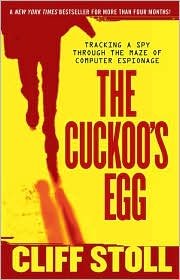Johnny Carson started to say, “What’s the secret of…” and Buddy yelled, “Timing,” very loudly, right in his face. It killed me. Timing is important — Johnny Carson has a throw pillow in his house that has embroidered on it, “It’s All in the Timing.”
The excerpt above is from How To Play In Traffic by Penn Jillette and Teller, published in 1997 and reportedly now out of print. But, whether or not the book’s out of print, this excerpt deftly demonstrates comedy timing.
Or, perhaps in this case: counter-timing.
Timing isn’t only important in comedy, of course; it’s crucial in many sports, such as archery or running (when should a runner add that final burst of speed, for instance?). And, in my opinion, timing is also often crucial to the success of a story.
 |
| In Memoriam |
Whether that story’s a suspense, mystery, romance, or even literary, timing often makes as big a difference between “hit” or “miss,” as it does on the archery range. Just the right “oomph” has to come at just the right moment, after a long period of climbing tension, or everything can fall flat and lifeless.
This is one problem I don’t believe the late Elmore Leonard suffered from.
In fact—comedic timing or suspense timing—I think he had a great sense of both. How else could he have turned out a work like Get Shorty?
Frankly, I believe folks will be reading Elmore Leonard for decades, if not centuries to come. And, though the reasons they sight for reading him may change over time, I believe his “timing” will be a major ingredient for his writing’s longevity, perhaps even immortality.
How did he do it?
A comedian can physically stop speaking, wait a beat or half-beat, then deliver the punch line. But, how does one accomplish the same thing in the written word?
A writer can’t very well write “Stop and wait a beat before reading the next sentence, please.” Yet, Elmore Leonard’s timing was terrific.
I believe Leonard gave us a pretty good hint, four years ago on Criminal Brief, when he wrote: “I’m a believer in white space, the setting off of text (and illustrations) with surrounding ‘emptiness’ to lend readability and visual attraction. William Morrow and HarperCollins charge dearly for white space. …”
He wasn’t necessarily talking about timing when wrote that. But, I strongly suspect his belief in the “white space” had a lot to do with his success in timing.
Think about it:
How often does a comedian wind along on a story, raising the comedic tension — only to suddenly drop into silence for a beat, before delivering a verbal snap-kick that sends the audience reeling?
That silent beat, or half-beat, is timing.
And, in the written word as Elmore Leonard dished it up, I think the printed equivalent was often hidden in the white space he so revered.
If white space, alone, did the trick, of course, I’m sure we’d see far more books with two or three lines of blank space between certain lines. And, that’s not terribly common, even in Elmore Leonard’s work. In fact, thumbing through four of his novels while researching this column, I found that he only did that to denote scene changes — a pretty common practice, I’m sure you’ll agree.
So, how does white space help with timing?
I think the answer is that it works in the interplay of other elements. In that same post on Criminal Brief, Leonard posted his ten tips for writers as follows:
- Never open a book with weather.
- Avoid prologues.
- Never use a verb other than "said" to carry dialogue.
- Never use an adverb to modify the verb "said,” he admonished gravely.
- Keep your exclamation points under control. You are allowed no more than two or three per 100,000 words of prose.
- Never use the words "suddenly" or "all hell broke loose."
- Use regional dialect, patois, sparingly.
- Avoid detailed descriptions of characters.
- Don’t go into great detail describing places and things.
- Try to leave out the part that readers tend to skip.
Taken together, and in conjunction with a statement he made around the same time: “My most important rule is one that sums up the 10: If it sounds like writing, I rewrite it,” we’re left with a clear understanding of his desire to achieve spare or stripped-down writing.
I took the opportunity to examine this list on a few other sites, and found it interesting, however, that Mr. Leonard made it clear: There is room for compromise.
As he pointed out at one point: these are ten rules that work for him; he’s not suggesting they work for everyone. In one case he explains, “If you happen to be Barry Lopez, who has more ways than an Eskimo to describe ice and snow in his book Arctic Dreams, you can do all the weather reporting you want.”
More importantly, he adds: ‘There is a prologue in John Steinbeck's Sweet Thursday, but it's OK because a character in the book makes the point of what my rules are all about. He says: "I like a lot of talk in a book and I don't like to have nobody tell me what the guy that's talking looks like. I want to figure out what he looks like from the way he talks."’
Reading what a character says, translating that into the “the way he talks” and using this to create a visual construct of the character may seem to be asking a lot from the reader. But, in an Elmore Leonard work it seems only natural.
He writes the character so that a reader can hear the cadence of that character’s voice, the “beat” of his words. Sometimes, it’s a staccato beat. At others, it’s a languid throb. But the beat is there! And, injecting abundant white space, which is the natural outcome of spare writing, in just the right way, can then create a gestalt of sorts that results in remarkable literary timing—right there on the page.
Is this idea crazy?
According to the New York Times, Mr. Leonard said: “The bad guys are the fun guys. … The only people I have trouble with are the so-called normal types. Their language isn’t very colorful, and they don’t talk with any certain sound.”
Of course, timing has to fit naturally into the voice that’s present, or the slight gear-change required to assure proper timing may signal a ‘heads-up!’ to the reader. This might work on occasion, but I suspect a more subtle manifestation of timing renders a bigger response on the part of the reader.
And, Elmore Leonard was a master of this. Perhaps that's why so many of his narrative view points seem to stem from the so-called 'bad guys;' perhaps they provided voices with the requisite cadence for successful timing.
Or, maybe I'm wrong.
One final comment on Mr. Leonard’s timing:
He passed away in his Bloomfield Township, Mich. home on Tuesday. And, the timing of his passing—from the viewpoint of this reader was:
“Too Soon! Oh, far too soon.”













 Lawrence Block wrote an excellent article on procrastination in his book, Telling Lies For Fun And Profit. The book is a collection of the columns Mr. Block wrote for Writer's Digest. In the article he talks about Creative Procrastination, the time we sometimes spend doing things other than writing. Not always, but often that time is really when our subconscious works on our story. Yes, really. Of course, that's not always the case. Often writers just put off writing and doing other things. I've vacuumed floors, cleaned bathrooms, done laundry, taken a walk or a shower just to keep from sitting down and working on my WIP (work in progress.) But he isn't saying to become a sloth either. What you have isn't necessarily writer's block.
Lawrence Block wrote an excellent article on procrastination in his book, Telling Lies For Fun And Profit. The book is a collection of the columns Mr. Block wrote for Writer's Digest. In the article he talks about Creative Procrastination, the time we sometimes spend doing things other than writing. Not always, but often that time is really when our subconscious works on our story. Yes, really. Of course, that's not always the case. Often writers just put off writing and doing other things. I've vacuumed floors, cleaned bathrooms, done laundry, taken a walk or a shower just to keep from sitting down and working on my WIP (work in progress.) But he isn't saying to become a sloth either. What you have isn't necessarily writer's block.














